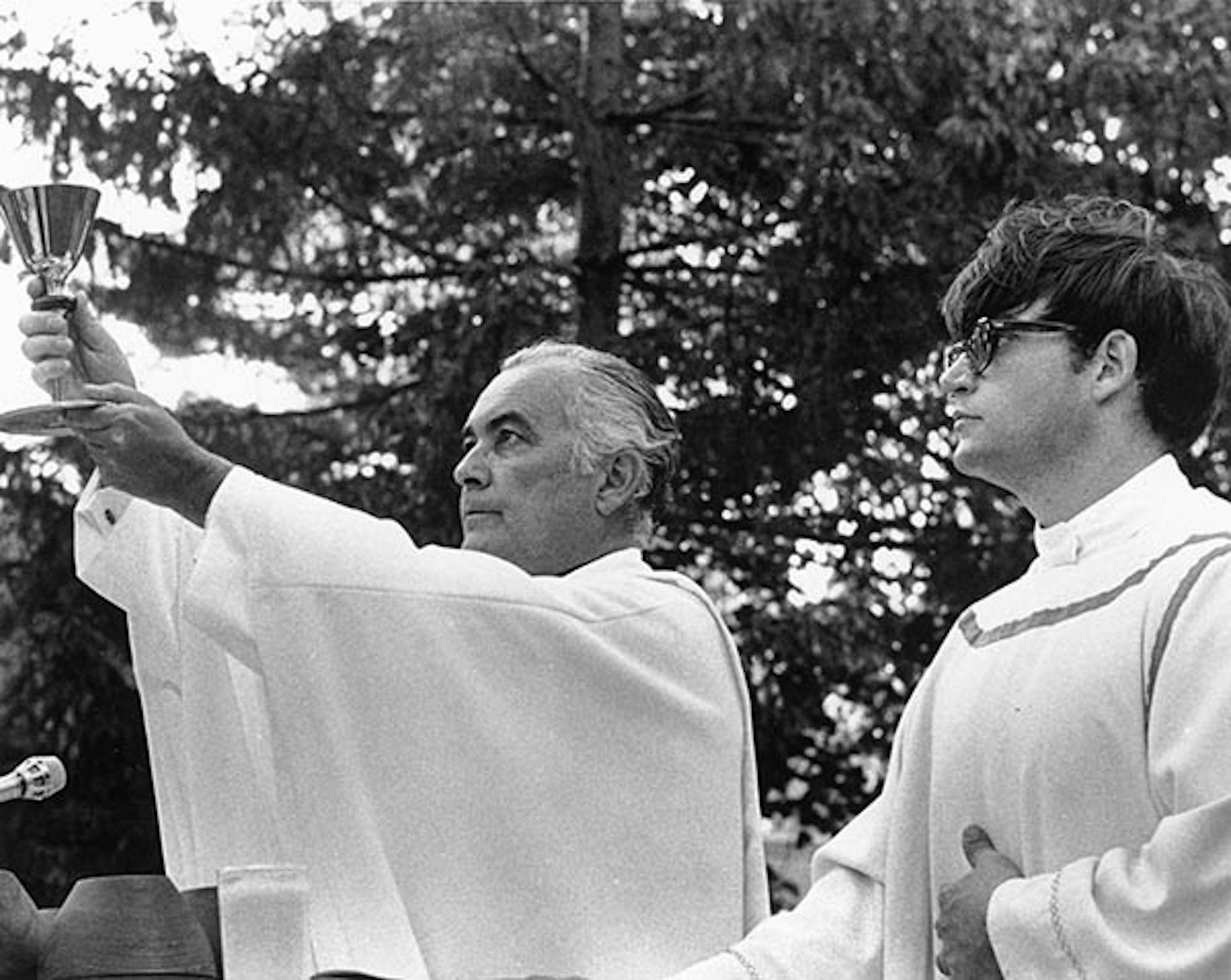University President Emeritus Fr. Theodore Hesburgh’s last day was characterized by the act that was most central to him throughout his life — saying Mass.
Although he wasn’t able to preside, Fr. Hesburgh was able to say Mass with his brothers at Holy Cross House on the day of his death. Doyle said other men present commented on how “happy and peaceful he looked” throughout the service.
It had been a prayer Hesburgh prayed for decades, to say Mass on the day he died. This desire wasn’t a surprise to those who knew him, Dillon Hall rector Fr. Paul Doyle said. Hesburgh was a man who thought of himself as a priest before anything else, who spent his life in prayer, Doyle said.
“[Hesburgh] was a prayerful guy, and he prayed from the gut,” Doyle said. “The prayers were very much between him and the Lord. He would talk to Mary, and the rest who heard him would feel like bystanders — like this is an intimate relationship and exchange here. He would do that at Mass, after Communion for example. He would just pray out loud to the Lord.”
Hesburgh prided himself in saying Mass every day — only missing one or two days in almost 72 years as a priest, Doyle said.
“[Hesburgh] said Mass in the Kremlin; he said Mass in Buckingham Palace; he said Mass in the South Pole, in the military installation down there,” he said. “He said Mass in submarines and everywhere else."
Fr. Ernie Bartell, professor emeritus of economics who was present at Hesburgh's last Mass, said he remembers saying Mass with Hesburgh even in the forests of rural Mexico, the site of a Notre Dame service project for students during the beginning of Hesburgh’s stint as University president.
“He was a great adventurer … but wherever he was, he said Mass. When he came to Mexico, we had Mass every day. … And that wasn’t for show or to impress the students or anything. That was the way he was.”
Hesburgh carried a Mass kit with him wherever he traveled so that he could say Mass wherever he was, Bartell said.
“The Mass was central [to him], no matter where he went,” Bartell said. “If he had a really busy schedule, he’d say Mass at five in the morning in the hotel room, or two in the morning as he got in his hotel room the next day because the Mass for him was this central prayer.”
What was central for Hesburgh, though, wasn’t necessarily the ritual of Mass, but the meaning behind it, Bartell said.
“For Ted, the Mass was very central to his life,” he said. “But he wasn’t like some priests who make the Mass the center of their lives, but then they become the people who tell you exactly how to hold your fingers or exactly how long to pause between this and that.
"That wasn’t Ted. … The Mass is, after all, an offering of all of your talents and all of your service to the Lord. And so I suppose it’s true that there have been some priests that focus on the Mass, and then they spend all their time telling you how you said it wrong today. … But that’s rubrics; that’s not prayer.”
As Hesburgh grew older, traveling to the Grotto and presiding over Mass became more difficult. But he was still dedicated to a life of prayer, Doyle said.
"We would drive by the Grotto, and since he moved over to the priest’s infirmary, he couldn’t make his daily trip to the Grotto,” Doyle said. “But if we were driving back, he wanted to stop, and he would talk to Mary out the [car] window, even though he couldn’t see her because he’s been mostly blind lately. He would just talk to Mary beautifully. I’d sit there and say, ‘Oh my.’"
During his stay at Holy Cross House, Hesburgh continued to go to Mass every day, Bartell said.
“He used to be walking. And then he came in [the chapel] with a walker," Bartell said. "And towards the end, they were wheeling him in, and he had to stay in the wheelchair … because it was so hard to move him. So he knew his days were going, but he did his best. He couldn’t go down to the dining room anymore at the end. They brought his meals up to his room, but he wanted to go to Mass.”
Up until his last day, when Hesburgh said Mass, Bartell said it came from the heart.
“When he said Mass, he really meant it,” he said. “He wasn’t doing it for show or to impress the trustees or anything like that. … He became a very real role model in that respect.”













